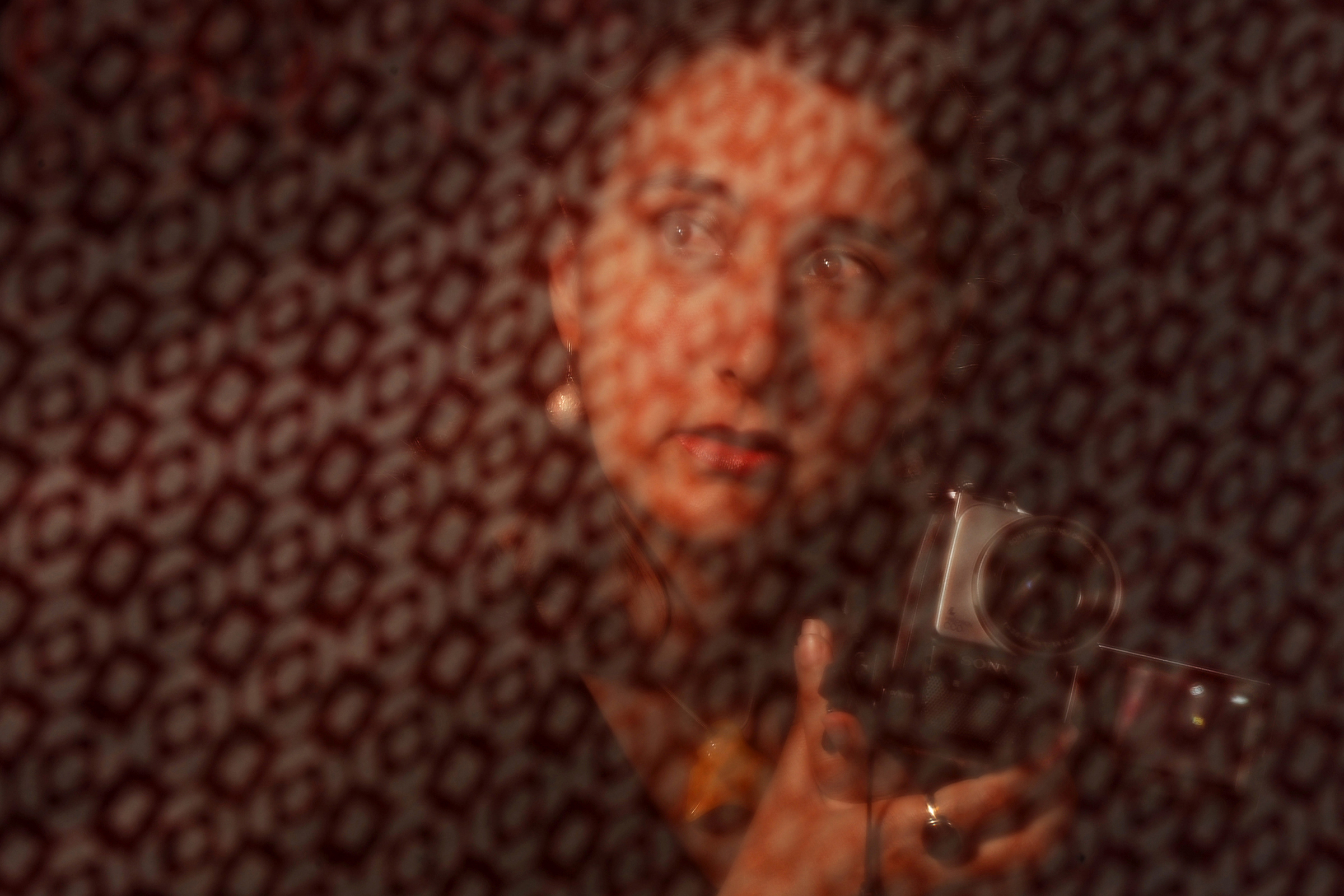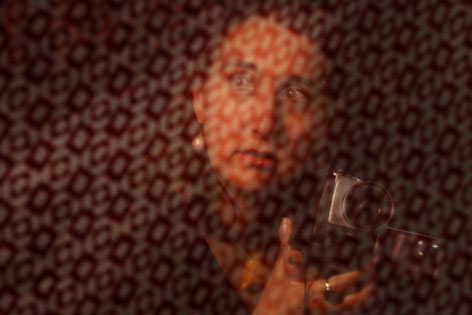Storytelling in Tehran

Storytelling in Tehran
- August 17, 2009
- Anthropology and film & media studies associate professor Roxanne Varzi makes a film about Iranian American identity and the aftermath of war
-----

 Growing up in suburban Michigan in the 1980s wasn't easy for Iranian-born Roxanne
Varzi, anthropology and film & media studies associate professor. The revolution in
Iran and subsequent taking of American hostages in Tehran had strained relations between
the U.S. and Varzi's homeland. Television reports depicted Iran as brutal and repressive;
classmates looked at her with suspicion.
Growing up in suburban Michigan in the 1980s wasn't easy for Iranian-born Roxanne
Varzi, anthropology and film & media studies associate professor. The revolution in
Iran and subsequent taking of American hostages in Tehran had strained relations between
the U.S. and Varzi's homeland. Television reports depicted Iran as brutal and repressive;
classmates looked at her with suspicion.
Varzi - whose Iranian father and American mother left Iran in 1979 when she was 8
years old - felt caught in the middle. "So much animosity, anger and propaganda were
coming from the U.S. news media during that time," she says. "I understood the power
of the media very early in life."
She found refuge in the arts and developed a passion for writing, photography and
film. Her first documentary, shot entirely in Iran, screened at the Boston Film Festival
last fall and was picked up for distribution by Documentary Educational Resources.
She first traveled to Iran in 1991 while spending a year abroad at the American University
in Cairo. The trip inspired her to tell Iran's story as she saw it: Despite revolution,
war and political upheaval, Tehran was bustling with energy. Residents rushed to art
gallery openings, and young adults were outspoken and creative.
"I was surprised to find a city that was so culturally vibrant and full of people
striving for social change," Varzi says.
She returned to Iran in 2000 on a Fulbright scholarship and began shooting footage
that would eventually develop into the documentary Plastic Flowers Never Die.
Varzi wrote, edited and selected music for the film, which deals with the aftermath
of the Iran-Iraq War, an eight-year conflict that killed more than 1 million people.
It explores the physical and emotional scars of war as well as Varzi's feelings about
her homeland. View video clip online.
"The Iran-Iraq War was one of the longest and bloodiest wars of the last century,
but it's only taught from a government-approved angle in Iran," she says. "My friends
and relatives told me not to waste my time, that it was a blight on the nation's history."
Her Iranian passport and vast network of family and friends helped Varzi obtain interviews
and footage. Despite its shoestring budget and low-tech camcorder - which she describes
as "something you would take to your cousin's wedding" - film festivals from Boston
to Berlin began screening the documentary late last year.
"Learning to film and produce a documentary was much harder than anything I've had
to do before," Varzi says. "It was important to me to have full creative and political
control of the project."
Ironically, while her Persian background had set her apart as a child in Michigan,
she had to relearn her native tongue upon her return to Iran. But Varzi has discovered
an advantage to not fitting in.
"Being an outsider helps in filmmaking and writing," she says. "It teaches you to
be sensitive if you've been knocked about a bit."
-Laura Rico, University Communications
-photo by Daniel Anderson, University Communications
-----
Would you like to get more involved with the social sciences? Email us at communications@socsci.uci.edu to connect.
Share on:
Related News Items
- Careet RightNotes from a future professor
- Careet RightCan Opportunity Zones ever meet their poverty-fighting promise?
- Careet RightFei Yuan named one of ten global China Times Young Scholar Fellows
- Careet Right'Wired for Words: The Neural Architecture of Language,' an excerpt
- Careet RightEveryone's looking for a partner who has these 3 traits, according to research


